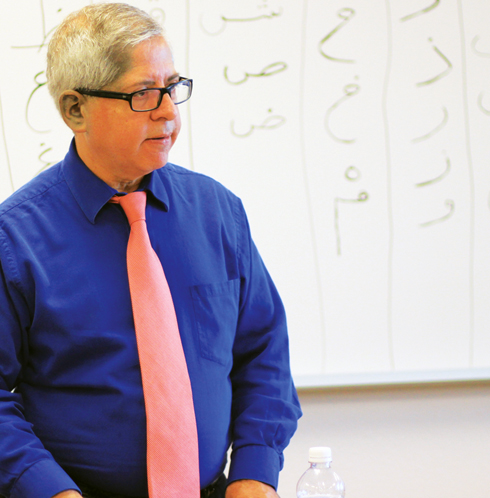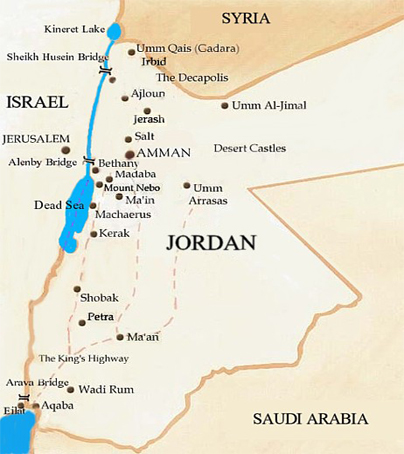Professor comments on political unrest in the world


Yasmin Shirali/Pioneer
Professor Thabet Swaiss teaches his Arabic class. Swaiss, a Jordan native, was a television reporter, writer and editor for the only English-language nightly television newscast for Jordan and surrounding countries in the mid ’80s.
Swaiss, a native of Jordan, was a television reporter, writer and editor for the only English-language nightly television newscast for Jordan and surrounding countries during the mid ‘80s.
He earned a bachelor’s degree in journalism from the University of Oklahoma and his master’s degree in mass communications at the University of Minnesota. He has been teaching Arabic at OCCC and Francis Tuttle for the past four years.
“Egypt is ready for a change,” Swaiss said. “Many families want a healthy democracy and a place for their children to enjoy freedom without fear of the government. They are ready to have wealth, shelter and peace.
“(But) there isn’t a replacement ready to step in to confront the corruption and dictatorship that has plagued the land for over 60 years.
“Government leaders, such as Hosni Mubarak, stay in office without opposition until they die.
“The few people that tried to oppose them were threatened or eliminated.”
 Arabic Professor Thabet Swaiss said he is watching the unrest in Egypt and other parts of the Middle East and North Africa with mixed emotions. He said it will be a very long time before things calm down.
Arabic Professor Thabet Swaiss said he is watching the unrest in Egypt and other parts of the Middle East and North Africa with mixed emotions. He said it will be a very long time before things calm down.
Along the Persian Gulf there are many wealthy people who enjoy the social benefits that derive from their government, but at a price, Swaiss said. They must keep quiet.
Swaiss said the ordinary citizens of these countries have long endured pain and suffering under the regimes.
The increasing violence has many concerned.
“Students at OCCC from North Africa and Morocco have a feeling of unease but there is also a feeling of hope,” Swaiss said. “Because people know that one day they may see a democracy.”
Most countries in that region have been oppressing people through assault, torture or murder, he said.
“Old regimes crushed all competition,” Swaiss said.
“It’s going to take a long, long time (for the political culture to change).
“We can expect more bloodshed and our gas prices to go up. Going forward, it will be tough.”
Swaiss emphasized the importance of a democratic change in the Middle East which has more than 22 Arabic speaking countries and more than 350 million people.
He said that would improve business and educational exchanges between the U.S. and the Middle East, impacting the future.
“I hope that recent events are just the beginning of a good thing,” Swaiss said.
“There is a glimmer of hope for a democratic and a modern Middle East.”